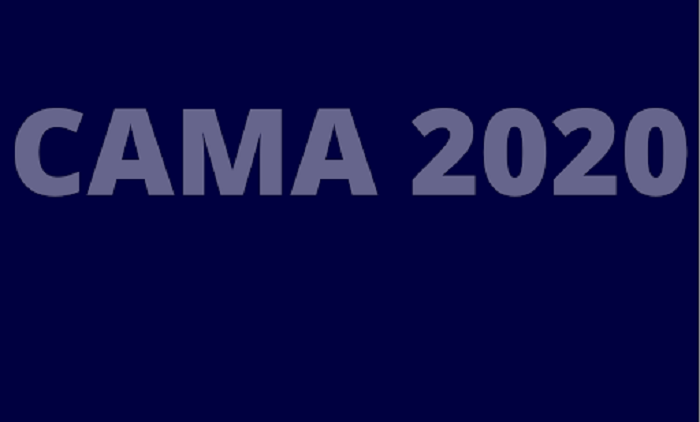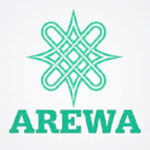Following the signing into law of the Companies and Allied Matters Act, (CAMA) 2020 by President Muhammadu Buhari on 7th August 2020, there has been a lot of controversies. Some leaders of the Christian community, in particular, have complained bitterly that the law interferes excessively in their affairs, which are purely religious and should therefore be out of bounds for regulatory agencies. This is not a new position. I recall the same argument was made by Kingsway International Christian Centre in the United Kingdom over a decade ago. The church is led by a Nigerian pastor, Matthew Ashimolowo and had at that time 8000 members that paid £9.5m in tithes and offerings in the 18 months to April 2008, dwarfing the £33,000 that the average Church of England congregation gave over the same period.
The luxury-oriented lifestyle of some of the church’s leaders attracted the interest of the British Charity Commission, which audited its accounts and found financial irregularities. It ordered Ashimolowo to repay £200,000 to the Church after it emerged he used church assets to buy a £13,000 Florida timeshare and £120,000 on his birthday celebrations, including £80,000 on a car. The Charity Commission appointed new trustees for the church, from within its members and removed him from his role as chief executive. The argument was simple, the organisation enjoys the tax-exempt status of a charity, and the money raised cannot be used without a sense of purpose and for doing public good. The head of the church left the United Kingdom in anger at the action of the Commission, returned to Nigeria where his Church prospered even more and now our own Corporate Affairs Commission is being empowered by law to act as its British counterpart. Other Nigerian churches in the United Kingdom have suffered the same fate.
I read the detailed analysis of the new law by Pastor Femi Atoyebi, SAN and he made very clear arguments we should listen to as he is both a Senior Advocate of Nigeria and a very senior pastor. He points out that the Act is not perfect but should not be dismissed as a bad law. The sections of the law that created the controversy are 823 to 839, which relate to the registration of voluntary organisations such as religious, educational, customary, social, cultural, sporting, charitable, etc., by their trustees. Section 838 provides for how to deal with the income and or assets of the association namely, that it shall be applied in and towards the declared objectives of the association as contained in its Constitution, which to me appears very sensible.
Atoyebi explains that the ‘offensive’ section seems to be Section 839 of the Act.
(1)The Commission may by order suspend the trustees of an association and appoint an interim manager or managers to manage the affairs of an association where it reasonably believes that –
(a)There is or has been any misconduct or mismanagement in the administration of the association;
(b)It is necessary or desirable for the purpose of –
(i) Protecting the property of the association,
(ii) Securing a proper application for the property of the association towards achieving the objects of the association, the purposes of the association of that property or of the property coming to the association,
(iii) Public interest;
(c) The affairs of the association are being run fraudulently.
(2) The trustees shall be suspended by an order of Court upon the petition of the Commission or members consisting one-fifth of the association and the petitioners shall present all reasonable evidence or such evidence as required by the Court in respect of the petition.
(3) Upon the hearing of the petition, and the appointment of the interim manager, the Court, with the assistance of the Commission, may make provision with respect to the functions to be performed by the interim manager or managers who will be an individual as the court may, from time to time designate, or
1) The Commission may by order suspend the trustees of an association and appoint an interim manager or managers to manage the affairs of an association where it reasonably believes that —
(a) there is or has been any misconduct or mismanagement in the administration of the association;
(b) it is necessary or desirable for the purpose of —
(i) protecting the property of the association,
(ii) securing a proper application for the property of the association towards achieving the objects of the association, the purposes of the association of that property or of the property coming to the association,
(iii) public interest; or
(c) the affairs of the association are being run fraudulently.
(2) The trustees shall be suspended by an order of Court upon the petition of the Commission or members consisting one-fifth of the association and the petitioners shall present all reasonable evidence or such evidence as requested by the Court in respect of the petition.
The Act is therefore not specifically targeted at churches or any religion. Atoyebi then makes the argument that: “The fears expressed by some sections of the Christian community is that Section 839 of the Act is a surreptitious attempt by govt to control the church and stifle it. If indeed there is a covert plan to harm or destroy the church by any govt; past, present or future – the concerns would be legitimate and as a member and a leader of the Christian community, I will not stand by idly and watch. However, if such allegation is based on Section 839 of CAMA, regrettably, I am unable to agree with the proponents of such a theory for a host of reasons.” Associations by definition, work for the common good of their members and target audience and it is not too much to insist that the said common good is not diverted by some leaders for their personal gain. Transparency and accountability must be exercised not just within the government, but also in the corporate and associational sectors.
Nigerians are very religious and jealous of their religious arena. Our Constitution provides for all of us the guarantee of religious freedom. Section 38 (1) in Chapter four of the Constitution:
“Every person shall be entitled to freedom of thought, conscience and religion, including the freedom to change his religion or belief and freedom (either alone or in community with others, and in public or in private), to manifest and propagate his religion or belief in worship, teaching, practice and observance.”
When however religious organisations formally register with the State and use the said registration to raise substantial capital, such revenue should be spent in consonance with the objectives the organisation has set for itself.

 Join Daily Trust WhatsApp Community For Quick Access To News and Happenings Around You.
Join Daily Trust WhatsApp Community For Quick Access To News and Happenings Around You.

